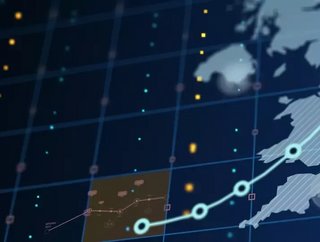UK ‘levelling up’ and implications for utility providers

Anita Dougall, CEO and Founding Partner at data solutions provider Sagacity, reflects on the Consumer Council for Water’s recent recommendation for a single social tariff in the water industry and why data holds the key to identifying inequality across the UK
We’ve known for years that the UK has some of the worst regional inequality in the developed world, and the more disadvantaged members of our society are set to feel the impacts of Covid-19 the longest. Against this backdrop, Prime Minister Boris Johnson is embarking on strategies to ‘level up’, bridge long-standing north-south divides, and build back from the pandemic in a way that is fair for everybody. Although utilities were not directly mentioned, the industry should take the speech as a cue to stop and think about the need for a more joined-up approach to ensure the basic needs of vulnerable people are met.
A joined-up approach
At the moment, different suppliers have their own individual support mechanisms for vulnerable customers, from social tariffs to keep costs under control, to tools and advice that can help people to limit their usage. However, as a Consumer Council for Water (CCW) report recently revealed, this approach means the support offered to vulnerable people can vary.
The CCW’s report proposes the introduction of a single social tariff to ensure all vulnerable people are given the same help, no matter where they live. Outside of the regionalised world of water supply, this fundamental shift should be considered across energy and other utilities as well, giving the same support to vulnerable people – regardless of who their supplier is. Standardised social tariffs would make things much fairer, preventing people from having to choose between other necessities such as food and clothes, and paying their utility bills.
Data holds key to levelling up
Becoming more joined up would be a huge step in the right direction, but regardless of the form it takes, regulators and providers must ensure support is offered in a proactive manner. Often people are not aware that help exists, or that they are eligible for it, while others are too embarrassed to make a claim or ask for assistance. This is a huge problem, with £16 billion of means-tested benefits currently going unclaimed in the UK each year.
As many vulnerable customers won’t necessarily be aware they qualify for help, or be willing to ask for it, the onus is on utilities suppliers to identify them and ensure they are getting the help they need. This is where the power of data comes into its own, as it can be used to find these people within your customer base.
Internal and external insights
For some of these customers, the clues will be hiding in plain sight, for example customers who previously paid regularly and on time start to make payments later and later, their payments start failing, they want to migrate onto cheaper tariffs or request extended payment terms. The clues may not just be payment related for example you may also see households with previously large bills dramatically falling which could suggest that they can no longer afford to heat their home or turn the lights on?
Of course, not every case will be that simple to identify and not all of these changes in behaviour signify affordability issues, so it is important to also consider wider intelligence that can help paint a fuller picture of customers.
By drawing on the wealth of third party data, for example from the Cabinet Office, suppliers can look for evidence of financial support. In practice this could be evidence that somebody receives benefits payments or pension credits, or that they have a lack of NI contributions, which points to a lack of employment. Joining the dots between internal data and the information available from the wealth of specialist third party data sources gives utilities companies a much clearer picture of their customers.
This enables the supplier to split their customer base, identify those who need help, and proactively reach out to offer support. This could be changing a customer’s tariff, allowing them to pay in instalments, or informing customers of eligibility for government support, such as the winter fuel allowance. Help and advice on energy consumption can also assist customers with affordability as well as reduce environmental impacts.
With a more joined-up approach and by using both internal and external data to offer more proactive support to vulnerable people, utilities suppliers can start driving real change. Regardless of whether single social tariffs do come into existence in the future, the power is in utilities providers’ hands to level up the UK and ensure support reaches everybody who needs it.






